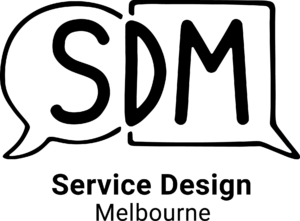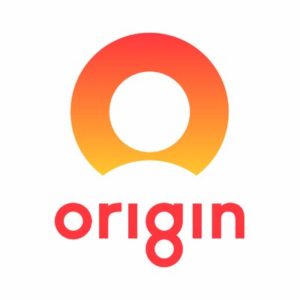We gathered a couple people who work in product and a couple people who work in design to discuss if every product is a service and how we can work together well.
This would not have been possible without Service Design Melbourne & NEXT, a division of the Reece Group, who kindly sponsored the evening.
To introduce our panel, we quizzed them on their qualifications…
Dave Calleja – Associate Design Director at Isobar. Has a degree in design.
Kate Edwards-Davis – Product Manager at Karista. Studied classical music performance & philosophy.
Dr Stefanie Di Russo – Principal Designer at NAB. Holds design degrees including a PhD in design thinking.
Daniel Kinal – Product Manager at MYOB. His degrees go across economics, accounting, marketing and a some information systems stuff.
And our moderator – Liz Blink – Digital Customer Experience Manager at Department of Environment, Land, Water & Planning VIC Government. Holds a PhD in immunology.
Which goes to show we work with people from very diverse backgrounds & there’s different avenues to getting into the work we do.
First we surveyed the audience to see which camp they belonged to… service design, product, something else or multiple areas. 57% of our audience said they were something else! From the shouts from the audience, it seemed a lot of folks identified with ‘UX’.
Dave raised the definition of ‘product’ and how you can’t really divide up things like Netflix into those definitions of ‘product’ or ‘service’. Do you think Netflix is a product or a service? He feels to discuss the two, there needs to be some semantic mud hurdling.
Steph pointed out that service design has a time element with artifacts and actors while product is the artifact itself at a certain point of time.
While Daniel thinks it’s all ‘product’ going across goods & services lines. If we are talking about eating a mandarin for breakfast or getting a scalp massage there’s a clear ‘product’ or ‘service’ in those definitions but we probably all work on complex products which have both tangible & intangible elements. There is a basket of benefits you’re offering the end customer.
Kate asked ‘who cares?’. The outcome is the important thing! We’re trying to package something together to help meet a customer’s need. ‘Products’ co-exist with ‘services’ and we even buy some ‘products’ despite the ‘service’ we receive with them.
Kate brought a prop along to prove the point that a ‘product’ or good can always be improved when you think about the ‘service’! Who Gives a Crap is toilet paper that’s been wrapped in a ‘service’. They offer a subscription service so you never run out and they are focused on social good by being environmentally sound and donating profits. They are disrupting with their ‘service’.
There was lots of talk of physical products – mandarins, toilet paper and then coke! Steph discussed the difference between a ‘service’ and an ‘experience’. The taste of the coke is part of the ‘experience’ while there’s actors & elements that enable the ‘service’ to exist.
But Dave brought it back into the realm of the digital (which most folks in the room work in…). When you are using a digital ‘service’ like Netflix, there’s definitely a physical attribute which might be sitting on the couch, having a tablet or remote in your hand. It’s how the end user experiences this, how the end user views that as the product. What words we in the industry use to discuss it isn’t as important as the outcome.
Service design is a design methodology & an approach to tackle problems. There are lots of frameworks & ways to understand problems and each discipline (product, design, marketing, etc) will have preferred ways. You can have customer experience people who do not use design methodologies and may rely more on marketing.
Daniel sees the rise of design thinking as a level of maturity in seeing the value of not going right to a solution and looking for ways to truly articulate the problem.
There was some discussion on how good ‘service’ can recover people when they have a bad ‘product’ experience. The ‘service’ element is what helps to get the good online reviews.
Steph asked Daniel if a good product person should have a design background which lead to a discussion about working together.
Everyone agreed a team needs to exist which brings different perspectives and skill sets. Kate brought up the skill set of being able to deliver a product at a price point that will sell & the act of using the organisation’s capabilities. Daniel discussed one of the responsibilities for a product manager is to be the advocate for the stakeholder who is not in the room (including the customer). Dave said if the team isn’t considering viability, feasibility & desirablity together, you’re unbalanced. Steph focuses more on the desirability while working with product people but is also thinking about the other two.
Healthy debates where you’re not so dogmatic about your position are best said Steph. Daniel wants designers to have a different perspective and be even more customer driven than he is so they can have creative (good) conflict about the different ways to reach a specific goal. He’s found that the more experience a person has, typically they have a level of maturity that allows them to leave their ego at the door about whose idea it was but at the end of the meeting, you are all focused in 1 direction.
Kate recommends spending time together to understand the customer & strategy. What a person’s title is doesn’t matter as long as you are there to learn & understand from each other. Dave also mentioned psychological safety of having those conversations & suggested leaving the drama to Love Island, not the office.
Thank you to NEXT, a division of the Reece Group and Service Design Melbourne for a wonderful evening!






